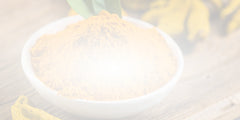
The human brain is fascinating, as it stores the impulses that make us who we are. Without our brains, our bodies would be little more than vehicles without an engine. Our brains are as powerful as a supercomputer and allow us to develop philosophy, mathematic concepts, art, and much more.
Despite the wondrous things the human brain is capable of, it is not a perfect organ. Our brains require as much care as our limbs or other internal organs if we do not want them to lose functionality. Unfortunately, the brain is susceptible to quite a few conditions that cause it to deteriorate, with some of the most terrifying affecting memory. Additionally, caring for the human brain is not as simple as caring for other parts of the human anatomy.
Unlike most organs and body parts, accessing the brain with medication and supplements is a greater challenge. This is thanks to how the immune system isolates the brain from certain toxins and stimulants. Fortunately, there are supplements we can use that allow us to tend to the health of our brains regardless of circulatory issues. One tool that might prove beneficial to enhancing the state of our brains is a mushroom known as lion's mane. While lion's mane does have a wide array of benefits, whether it can promote neurogenesis is worth discussion.
What is Brain Neurogenesis?
If you have never heard the term "neurogenesis," you should not feel too bad. The concept of neurogenesis is something that only neurologists and biologists are familiar with, while it remains less relevant to the average person. Neurogenesis is a developmental process that generates new neurons in the brain.
Neurons are electrically excitable cells found only in the brain and are responsible for coordinating the nervous system by forming intricate connections called synapses. Through these synapses, the neurons can communicate with other cells in the body, even those outside the brain. Without neurons, our brains would be utterly incapable of managing our nervous system.
The process of neurogenesis is how our bodies create our existing neurons and how they connect with existing synapses or form new ones. It stands to reason that constant neurogenesis could eliminate degenerative neurological conditions. Unfortunately, neurogenesis is not a consistent process in our bodies. Neurogenesis is most active during the developmental stages of the embryonic phase of our lives.
Essentially, neurogenesis peaks while we are still gestating as embryos in our mothers. This is not to say that neurogenesis stops when we are born, but its efficiency lowers as we age. After we are born, our neurons no longer undergo mitosis, meaning new neurons are not manufactured in all brain regions.

The human brain has 3 major sections that store multiple deep structures and lobes regulating neurological function. These 3 sections are known as:
- Cerebrum
- Cerebellum
- Brainstem
Despite the number of components in the brain, neurogenesis does not persist across them all. Once we become adults, neurogenesis only yields new neurons in 2 areas of the brain:
- Subgranular Zone: The subgranular zone is a region in the hippocampus (where memory is stored).
- Subventricular Zone: The subventricular zone is a region in the lateral ventricles (where olfactory senses are regulated).
While neurogenesis continues in these brain regions, the newborn neurons do not survive long—most of the neurons born as adults die, with only a handful integrating into our nervous system. With the rate of dead neurons compared to viable neurons, neurogenesis in adults is less effective compared to prenatal neurogenesis. This brings us to the question of whether a supplement exists that can promote enhanced neurogenesis in adults.
Understanding the Blood-Brain Barrier
Before considering tools to improve brain function, we need to understand how a supplement could reach the brain. Our brains are the most important organ in our body, followed closely by our hearts. Due to the relevance of our brains, our bodies developed to protect our brains from certain hazards. This protection is provided by a semipermeable wall of endothelial cells called the blood-brain barrier (BBB). This barrier acts as a border between our brains and the rest of our circulatory system and is a highly selective set of cells that restricts what can access the veins leading to the brain.
The existence of the blood-brain barrier was designed to keep certain toxins and bacteria from accessing our brains. Specifically, the blood-brain barrier can repel most pathogens, so we risk developing neurological diseases as little as possible. Very few substances can permeate the blood-brain barrier, and most of them are essential compounds manufactured by our bodies. This is not to say the blood-brain barrier is 100% effective, as certain harmful molecules can break through. However, it is a very reliable defense mechanism.

Unfortunately, as good as the blood-brain barrier is at keeping harmful molecules out, it is just as effective at keeping beneficial molecules out. The blood-brain barrier presents the biggest challenge for neurological supplements since most products cannot cross the blood-brain barrier. Some foods and supplements can cross the barrier, but they are just as rare as the harmful toxins that are capable of getting through the membrane. As a result, the number of tools we can use to promote neurogenesis is heavily restricted by our gray matter's personal bouncer.
While the blood-brain barrier can be a bit of a double-edged sword, some very powerful supplements can break through and improve our neurological health. It only becomes a matter of determining which substances stand the best chance of crossing the barrier and whether they offer genuine benefits. Once again, we come to the question of how lion's mane plays a role in neurological health.
Can Lion's Mane Promote Neurogenesis?
Hericium erinaceus, known colloquially as lion's mane mushroom, is a peculiar fungus with an even more peculiar appearance. Its moniker derives from the long, spine-like fruiting bodies resembling a lion's mane. Despite its unusual appearance, lion's mane is edible and has become a popular tool for health enthusiasts. Lion's mane has grown in popularity thanks to its many physical health benefits that allow us to reinforce our overall health without chemical assistance. Among its many benefits are several neurological effects that can improve our ability to resist the effects of mental and neurological health issues.
The cause of Hericium erinaceus' neurological benefits is found in the fungus' scientific name. Like virtually all fungi, lion's mane has 2 very special compounds stored in its fruiting bodies: hericenones and erinacines. These compounds are scientifically proven to bypass the blood-brain barrier without much issue. This has turned mushrooms and fungi in general into a powerful medium for neurological health supplementation. Thanks to these compounds, lion's mane mushrooms can provide health benefits to our brains directly. The real question is whether those benefits include neurogenesis.
The answer to that question is a resounding yes, as studies have shown that lion's mane can promote the growth of new brain cells. One of the most astounding effects directly involves improving memory by promoting cell growth in the hippocampus. While it is true that neurogenesis continues in the hippocampus in later life, the death rate of these new cells makes it less viable. Furthermore, a study was conducted that directly connected the following 4 compounds in lion's mane to improved memory:
- Isohericerinol A
- N-de-phenylethyl
- Corallocin A
- Hericerin
These 4 compounds, concentrated in the mushroom's fruiting bodies, greatly improve the nerve growth factor (NGF) production in C6 glioma cells. With the improved growth of these cells, studies found that the brain's memory retention increased. These results have turned lion's mane into a highly effective neurological booster by promoting new brain cell development, including neurons. This was further supported by a different study evaluating the mushroom's antidepressant use.
While depression might seem like an unrelated issue compared to decreased neurogenesis, it is more closely related than most people realize. Depression affects the dentate gyrus, a part of the hippocampus, which meant the study's goal was to undo the damage in that region of the brain. While depression is a psychological issue, it can result from physiological damage.

The secondary study involved administering lion's mane mushroom to animals suffering from stress and depression over 4 weeks. Over those 4 weeks, the production of bromodeoxyuridine-positive cells increased in the dentate gyrus. The production of these cells alleviated the animals' depressive state.
The truly fascinating part of the experiment was when temozolomide was administered to the animals after the successful test. After receiving the temozolomide, the antidepressant effect of the lion's mane was completely reversed. This result is important because temozolomide is a compound that blocks neurogenesis completely. Since the antidepressant effect of lion's mane was undone by a neurogenesis blocker, it proved that the mushroom's effect on depression is neurogenesis dependent. This means that the mushroom likely improved neurogenesis to undo the effects of depression in the subjects.
Additionally, the lion's mane treatment induced an anti-neuroinflammatory effect, protecting the subjects' brains from another harmful compound. As odd as it might sound, inflammation can affect the brain, and this inflammation can prevent the growth of new brain cells. By reducing this inflammation, new cells can grow unimpeded but finding an anti-neuroinflammatory that works is a challenge. Fortunately, it seems lion's mane can fill the role quite nicely. This anti-neuroinflammatory effect was also canceled out by the temozolomide, further corroborating the neurogenesis-promoting effects of lion's mane.
Lion's mane mushrooms are also a possible nootropic, though the evidence of this effect is still being assessed. A nootropic is a substance that can enhance our cognitive function and reinforce our body's ability to protect our nervous system. While the evidence supporting lion's mane as a nootropic is still somewhat thin, the current evidence points to lion's mane being part of that family. If lion's mane is a nootropic, its neurological effects might go further than anticipated.
Lion's mane is becoming a beloved neurological supplement based on these benefits. Though it is important to note that lion's mane offers other benefits, some are still being assessed. However, the promise that lion's mane shows toward improving neurological health, including neurogenesis, cannot be ignored. The only real issue is finding a lion's mane supplement you can trust to provide your daily dose.
The Nu, Healthier You
Lion's mane mushrooms are fascinating for their appearance and effects on the human body. The benefits that lion's mane offers for the physical body and our neurology are slowly cementing its place in the health world. While some research on lion's mane and its neurological benefits is still young, the initial results and the more concrete evidence from well-established studies have turned it into a viable choice for those seeking supplements.
The initial research seems to prove that lion's mane promotes neurogenesis and uses that system to produce additional benefits improving mental health and the physical state of the brain. While this might make using lion's mane more attractive in your eyes, you still need to consider a few things before getting started.
First and foremost, you should consult with your primary care physician before introducing lion's mane or any supplement to your diet. A significant demographic suffers from fungal allergies, which could turn lion's mane into a harmful substance instead of a beneficial one. Consulting with a doctor to ensure you do not have an allergy to lion's mane will protect you from suffering harmful side effects. If you are clear of any allergies to the mushroom, the only thing left is finding a supplement you can trust.

To that end, we at NuVitality invite you to visit our store. We specialize in producing and selling naturalistic supplements using lion's mane, turmeric, and more. Our lion's mane capsules will allow you to consume your daily dose and reap the mushroom's benefits with minimal hassle. We pride ourselves on using natural and safe ingredients in our products you can trust. So, if you want to experience lion's mane for yourself, consider purchasing a bottle of our lion's mane capsules and taking that first step to the Nu, healthier you.



![[Guide] Can You Take Turmeric With Your Other Vitamins?](http://nuvitality.us/cdn/shop/articles/A_Bowl_of_Powdered_Turmeric_medium.jpg?v=1663544569)


